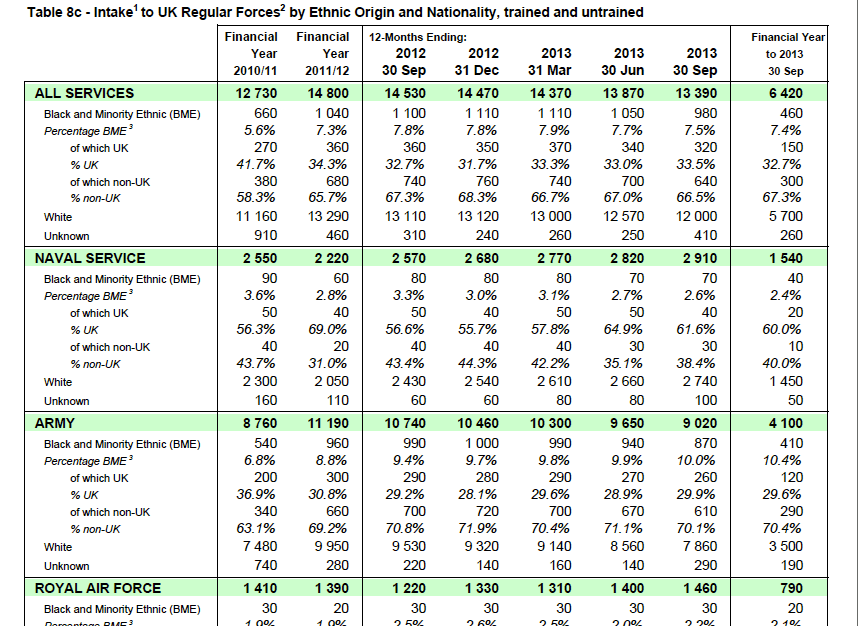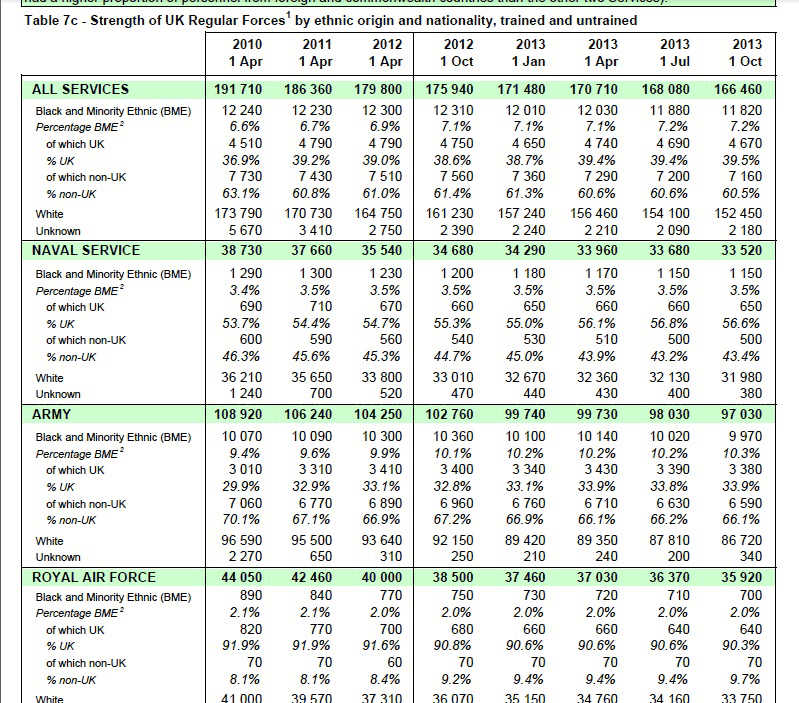The quarterly stats published by the Ministry of Defence in November 2013 have some interesting details in them. For anyone paying attention to the changing size and composition of the UK armed forces they contain some useful facts, figures and trends – not least about ethnicity and gender. But diversity in the armed forces is not exactly a front page topic, especially when they are under-recruiting and down-sizing all at the same time.
However, it’s important to track what’s happening in this hugely symbolic national institution. In July the MoD stopped the armed forces from recruiting Commonwealth citizens unless they have been living in the UK for five years continuously. This took effect in July 2013 so it is too soon to show the impact of the decision in the stats and considering how they might be affected in the long term.
One of the tables shows the intake to UK Regular Forces (including deployed reservists) by Ethnic Origin and Nationality. It is worth pointing out again that the army has the highest proportion of BMEs (<10%) and the other services fall some way behind.
Number crunching
In the 12 months ending in 30 September 2013, 70.1% of new BME soldiers were non-UK citizens (290); 29.9% (120) were UK citizens. That means that well over two thirds of BMEs recruited are not holders of British passports and therefore, since July 2013, would no longer be eligible to apply for military work unless they can fulfill the residency requirement. The relatively high proportion in these figures must reflect a surge of applications/acceptances to beat the change in regulations.
Then there’s the actual ‘strength’ of the armed forces, as opposed to the ‘intake’. Another table shows that the number of UK-born BMEs has not changed very much over the past couple of years – the figures are 66.2% non-UK (6590) as opposed to 33.8% UK citizens (3380).
All about The War
In other words, the impact of recruiting Commonwealth soldiers – military migrants – has been to increase substantially the ethnic diversity of the British Army over the past decade. Bearing in mind that this category also includes minorities who would not self-identify as black (white South Africans, for example), the pattern of diversity in the next round of statistics will surely begin to show a decrease in the numbers of BMEs. This represents a problem for the MoD – but not because of any obligation to recognise equality issues.
Recruiting BMEs into the armed forces will continue to be a priority for demographic reasons alone. In a future post I will be arguing that the government’s WW1 commemorations aimed at recognising Commonwealth ‘contributions’ (under the heading Our Shared History, Our Common Future) are in part a giant recruitment exercise.
Calling attention to the global dimensions of military labour entailed in ‘The Great War’ means that there will be countless funded events and initiatives aimed at Britain’s minority communities. The project of reclaiming imperialist history as proof of shared suffering and sacrifice also entails the task of persuading the British-born descendants of those early Commonwealth soldiers that military work belongs to an honourable family tradition.

